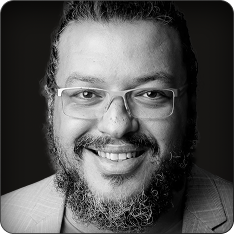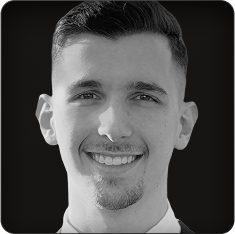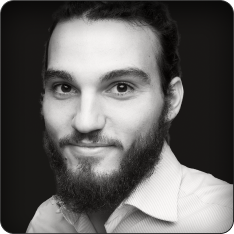Have a specific experiment in mind and wondering about the best quantum control and electronics setup?
Want to see what our quantum control and cryogenic electronics solutions can do for your qubits?

Dr. André Saraiva
Head of Theory

Dean Poulos
CS Physicist, AUS
Scaling silicon spin qubits requires hybrid quantum–classical integration to accommodate ultra fast qubit operations and limited coherence times. We present Diraq’s roadmap using the NVIDIA DGX Quantum system, where Nvidia’s GraceHopper superchip and Quantum Machines’ OPX1000 enable real-time feedback for tasks with varying latency requirements; ranging from machine-learning-based autocalibration, to heralded initialization within relaxation times, and ultimately mid-circuit measurement faster than decoherence. Complementing this, we introduce the DGXQ-alpha reinforcement learning software framework, highlighted through the example of GHZ state-fidelity optimization, and discuss its path toward broader usability in hybrid quantum–classical workflows.
Share it with others

Head of Theory
Abstract
Valuable quantum computations are necessarily hybrid, with realtime integration between state-of-the-art classical compute and quantum systems. In the case of spin qubits in silicon, this is extremely challenging given the ultrafast qubit operations and limited coherence times. Diraq has adopted the DGX Quantum system to demonstrate applications of realtime feedback between Nvidia’s GraceHopper superchip and Quantum Machines’ OPX1000 in useful tasks for quantum computation. These demonstrations follow a roadmap of increasingly challenging latency requirements, ranging from roundtrips that (1) need to happen only after a few shots of full quantum circuits, such as in machine learning autocalibration routines, to (2) applications that need to beat the relaxation time of spins, such as in heralded initialization, all the way to (3) mid-circuit measurements that need to happen faster than the decoherence time T2.
Bio
André Saraiva is Head of Theory at Diraq, leading the design and modelling of large-scale silicon-based quantum processors. A solidstate physicist specialising in spin qubits, quantum dots, and scalable semiconductor architectures, Saraiva is focused on advancing the theoretical foundations required to scale quantum systems to the millions, and ultimately billions, of qubits needed for practical commercial applications. Before joining Diraq in 2022, he held senior research roles at UNSW Sydney and Silicon Quantum Computing, and served as Professor of Physics at the Federal University of Rio de Janeiro. He has also held postdoctoral fellowships at the University of Wisconsin–Madison and UFRJ. Saraiva holds a PhD in Physics from UFRJ and has authored numerous scientific publications that have shaped the development of silicon-based quantum computing.

Customer Success Physicist for Australia
Abstract
Overview of the current software framework for programming the DGXQ-alpha for reinforcement learning, referencing the example of GHZ state fidelity optimization. Explore future directions for enhancing the functionality and usability of the framework going forward.
Bio
Dean is a Customer Success Physicist for QM based in Sydney, Australia, who works with research groups and companies in APAC. He developed the DGXQ-alpha software framework for reinforcement learning and will be furthering its development. Dean is proficient in using QUA to measure superconducting qubits, spin qubits and other platforms, and helps develop standard calibration software. He has a background in measuring spin qubits at UNSW, and software engineering related to qubit calibration, compiler architecture and reinforcement learning.

Product Solutions Physicist
Bio
Dr. Lorenzo Leandro is a Product Solutions Physicist at Quantum Machines, where he leads product outreach and solutions for the photonics market. With a Ph.D. in Experimental Quantum Optics from the Technical University of Denmark and years of experience in scientific communication, he strives to connect scientific endeavor and results with the vision of quantum computing technologies, engaging and inspiring the current and next generations of scientists.
On-demand seminar
Have a specific experiment in mind and wondering about the best quantum control and electronics setup?
Want to see what our quantum control and cryogenic electronics solutions can do for your qubits?